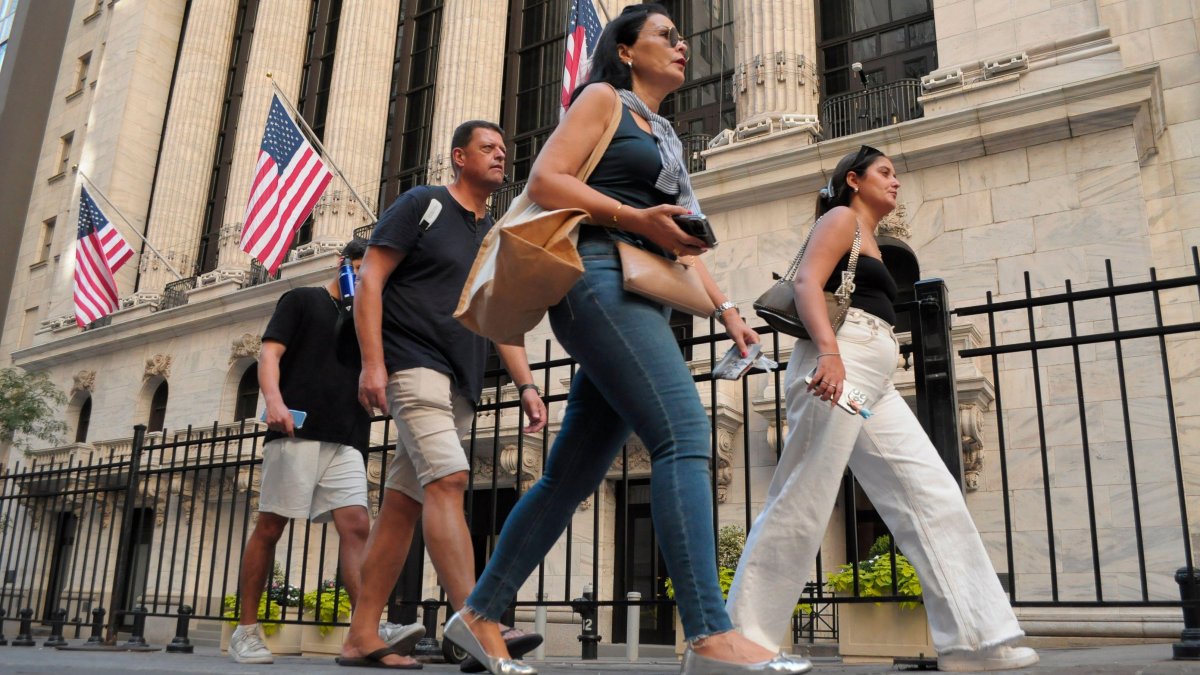The US added just 22,000 jobs in August, raising fears that growth in the world’s largest economy is stalling and increasing pressure on the Federal Reserve to cut interest rates more sharply.
Economists had expected monthly payrolls to grow in the region of 75,000 in the closely watched non-farm payrolls jobs report. The unemployment rate also rose to 4.3 per cent from 4.2 per cent, according to the US Bureau of Labor Statistics.
President Trump, who fired Erika McEntarfer, the commissioner of the bureau, immediately after July’s disappointing figure of 73,000, resumed his long-running attacks on Jerome Powell, the Fed chairman.

Erika McEntarfer
US BUREAU OF LABOR STATISTICS/REUTERS
“Jerome ‘Too Late’ Powell should have lowered rates long ago. As usual, he’s ‘Too Late!’” Trump posted on his Truth Social social media platform.
Immediately after the latest jobs data traders raised their bets on the Fed cutting the cost of borrowing by a quarter point from the current range of 4.25 per cent to 5 per cent for the first time since December to almost 99 per cent.
However, as economists digested the weakness of the labour market the betting pattern shifted. By the close of trading in New York on Friday 88 per cent were still going for a quarter-point reduction but 12 per cent were now backing a larger drop to the range of 3.75 per cent to 4 per cent.
• After a very brief selling frenzy, bonds are back in fashion
Atakan Bakiskan, US economist at Berenberg, described the jobs report as “weak from every angle”. Art Hogan, a strategist at B Riley Wealth Management, a financial advisory firm in Boston, said: “This number puts a 50-basis-point rate cut at the next meeting back on the table.
“More significantly, I think 75-basis-point before the end of the year is now pretty much of a lock.”
Olu Sonola, head of US economic research at Fitch Ratings, said: “The warning bell that rang in the labour market a month ago just got louder. A weaker than expected jobs report all but seals a 25-basis-point rate cut later this month.”
In a further blow, the bureau also revised down its estimates for jobs growth in June by 27,000 to a contraction of 13,000 — the first negative payrolls reading since 2020.
• Gold hits new record price amid fears for American economy
On Wall Street equity markets initially opened at fresh intraday highs but very soon turned negative. By the close on Friday the S&P 500, the index regarded as being most representative of the US economy, had retreated from Thursday’s 21st record close of the year so far, to finish 0.3 per cent lower at 6,4,481.50. The technology-heavy Nasdaq was down by 0.03 per cent at 21,575.54.
US government bonds rallied and the dollar fell sharply. The yield on two-year Treasury bonds, which are sensitive to interest rate changes, fell by 0.11 percentage points to 3.5 per cent and the dollar fell by 0.6 per cent against a basket of major currencies. The pound had gained 0.63 per cent against the greenback to $1.35. Yields on the UK’s 30-year gilts also fell 0.08 percentage points to a two-week low.
